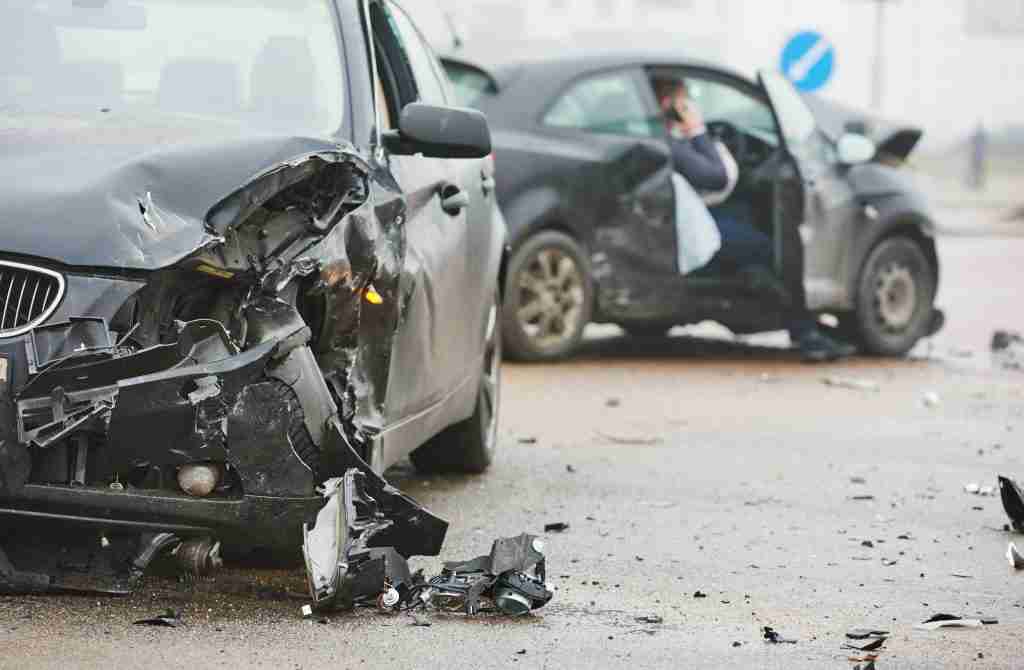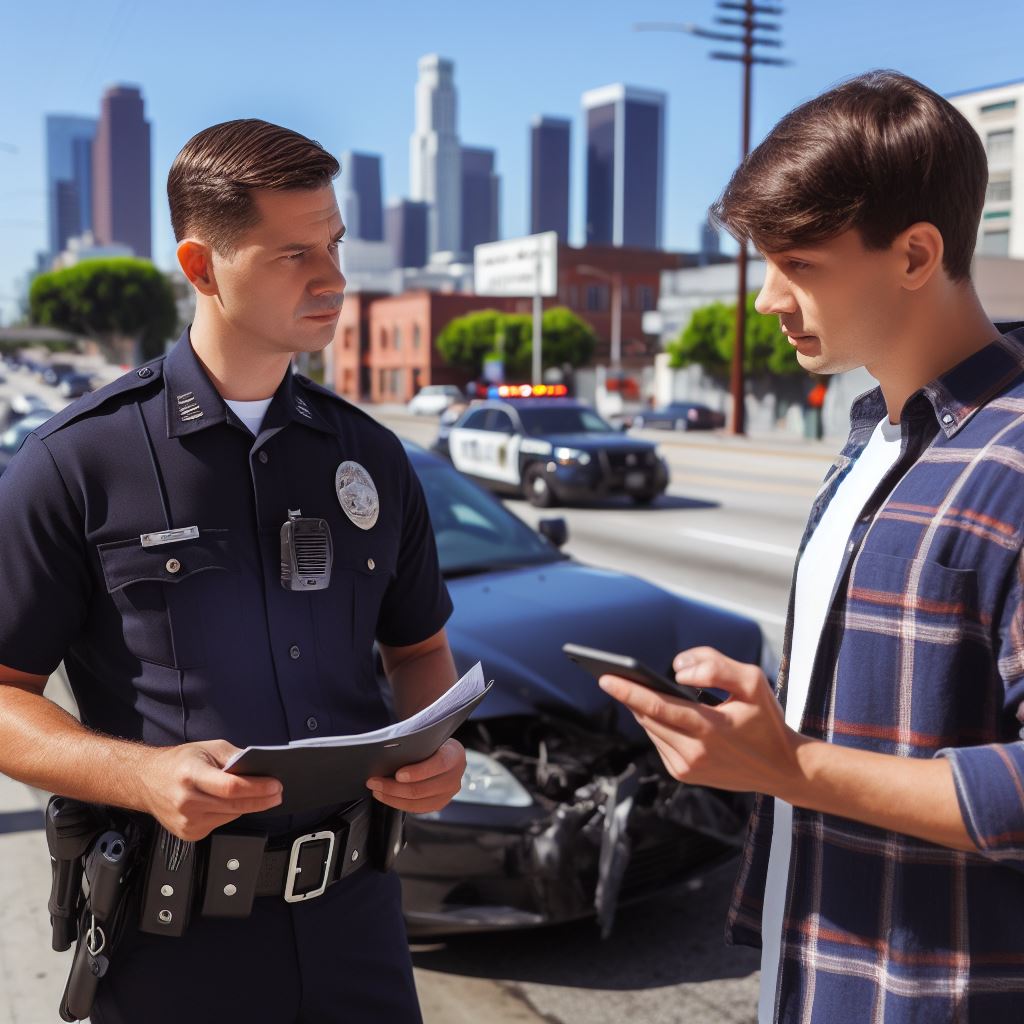Car accidents are a common occurrence in California, and they can be caused by various factors. In many cases, one of the drivers involved is at fault. If you find yourself in a situation where you believe you caused the accident, it can be overwhelming, it’s essential to understand the implications and the steps you should take.
Understanding the implications of being at fault in a car accident in California is essential. Being aware of your legal options can empower you to handle the situation effectively. At JSM Injury Firm APC, our experienced Car Accident Lawyers in Anaheim can guide you through the process. Allow our team to provide you with the necessary support and legal expertise to navigate the complexities of your case.
Understanding Fault in California Car Accidents

Determining fault is a pivotal aspect of establishing responsibility in a car accident. In California, fault is determined by evaluating several factors, such as the conduct of the drivers and the existing road conditions. The state operates under a fault-based system, wherein drivers found at fault may be held accountable for the resulting damages, encompassing property damage, medical expenses, lost wages, and other accident-related costs.
Types of Fault in California:
- Negligence: Negligence occurs when a driver fails to exercise reasonable care while driving, leading to an accident. For instance, texting while driving can be considered negligent behavior.
- Recklessness: Recklessness refers to a deliberate disregard for the safety of others. Examples include racing on the highway, endangering other drivers.
- Intentional Misconduct: This involves a deliberate act causing an accident, such as running a red light intentionally.
- Strict Liability: In specific cases, a driver can be automatically considered at fault, irrespective of negligence or recklessness. For example, hitting a pedestrian in a crosswalk may lead to strict liability.
Determining fault can be intricate, often involving multiple contributing factors. California employs a comparative fault system, allotting a percentage of responsibility to each driver according to their level of involvement.
Liability in California Car Accidents:
Liability establishes legal responsibility for an accident, determining the party financially accountable for resulting damages and injuries. Several types of liability exist in California:
- Negligence Liability: This common form of liability arises when a driver fails to exercise reasonable care, breaching their duty and causing an accident. Establishing negligence involves demonstrating the failure to uphold a duty, directly resulting in the accident and subsequent damages.
- Vicarious Liability: This occurs when someone is held responsible for another person’s actions. For instance, an employer might be vicariously liable for an employee’s accident while driving a company vehicle.
- Product Liability: Product liability arises when a defective product, such as a faulty car part, causes an accident. In such cases, the manufacturer or distributor may be held accountable for resulting damages.
- Intentional Tort Liability: This type of liability emerges from intentional acts causing harm, such as purposefully ramming a vehicle into another, resulting in damages.
- Strict Liability: Strict liability applies when a driver is automatically deemed at fault, irrespective of negligence. For instance, hitting a pedestrian in a crosswalk falls under strict liability.
Insurance companies play a vital role in determining liability, conducting investigations involving police reports and witness statements. If a policyholder is found at fault, the insurance company typically covers damages and injuries up to the policy limit.
Understanding fault and liability in California car accidents is essential. Being aware of these factors can help drivers comprehend their legal rights and responsibilities, ensuring a fair resolution in the aftermath of an accident.
What Steps to Take After a Car Accident You Suspect If You Are At Fault

If you find yourself at fault in a car accident in California, it’s imperative to understand the legal obligations and potential consequences that follow. That is why following the right steps in the aftermath of a car accident is critical.
Fleeing the scene of an accident, particularly if you’re responsible, can result in significant legal consequences. California law mandates that you must stay at the accident site. Leaving prematurely can result in hit and run charges, carrying severe penalties. Even in cases of property damage alone, it’s crucial to exchange insurance information with the other driver involved in the accident. If you hit a parked car, you can leave after leaving your contact details for the owner.
Handling Accidents with Injuries:
Accidents involving injuries demand a more serious approach. Law enforcement officers may need to be involved, and it’s crucial to cooperate. However, caution is advised regarding statements made about the accident. Seeking legal advice promptly can guide you on how to discuss the collision without inadvertently harming your case.
Insurance Involvement:
In minor property damage cases, your insurance company may manage the resolution process. While your rates are likely to increase if you’re deemed at fault, insurance representatives might attempt to demonstrate shared responsibility, thereby limiting the impact on your premiums.
Legal Assistance:
Don’t accept blame without considering all factors. California follows a comparative negligence system, allowing fault to be shared among multiple parties. Consulting a Car Accident Lawyer, especially if there are potential shared responsibilities, can help assess your case thoroughly. Factors such as the other driver’s erratic behavior, violation of traffic signals, tailgating, or distracted driving could influence the distribution of blame.
Potential Lawsuits:
In some instances, car accident cases escalate to court, especially if serious injuries are involved. If another party decides to sue you, they might seek compensation for medical treatment, lost wages, vehicle repairs, pain and suffering, among other damages. Seeking legal representation promptly can protect your rights and interests throughout the legal process.
Criminal Charges:
You could potentially face criminal charges in addition to financial responsibilities depending on the circumstances surrounding the accident. DUI or reckless driving could result in significant jail time, particularly if the accident results in severe injuries or fatalities.
Statute of Limitations:
If you’re worried about possible legal action, it’s crucial to understand that in California, the statute of limitations for filing a personal injury lawsuit is two years from the accident date. Until this period expires, the other party retains the right to pursue legal action. After this timeframe, you are generally no longer liable for damages related to the accident.
In summary, being at fault in a car accident demands careful navigation of legal processes and potential consequences. Seeking legal advice and understanding your rights can significantly impact the outcome, ensuring you make informed decisions during this challenging time.
Dealing with Insurance Companies
Contact your insurance company as soon as possible to report the accident. Provide them with accurate and honest information about the incident. Your insurance provider will conduct an investigation into the accident and, based on the results, assess the applicable coverage. However, it is recommended to not communicate with insurance companies alone. A car accident lawyer has the expertise to deal with insurance companies.
Traffic Violations and Points
Depending on the circumstances, you might receive traffic citations or points on your driving record, which can impact your driving privileges and insurance rates.
Navigating Fault and Liability: Your Roadmap After a Car Accident in California

Being at fault in a car accident in California can have significant repercussions, but understanding the process and your rights is crucial. It’s essential to remain calm, cooperate with authorities, and seek legal advice if necessary. By following the proper procedures and being aware of your rights, you can navigate the situation more effectively and protect yourself from undue financial and legal consequences.
Facing the complexities of a car accident in California? Our experienced Car Accident Lawyers at JSM Injury Firm are here to help you navigate the legal maze. Don’t face it alone—get expert guidance and support. Contact us now for a consultation and let us fight for your rights.
